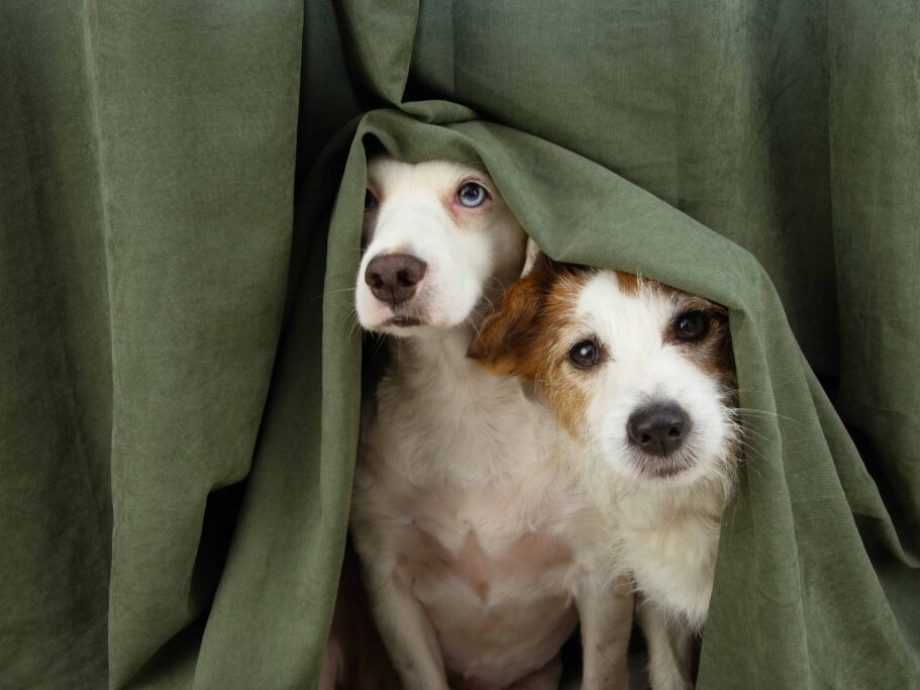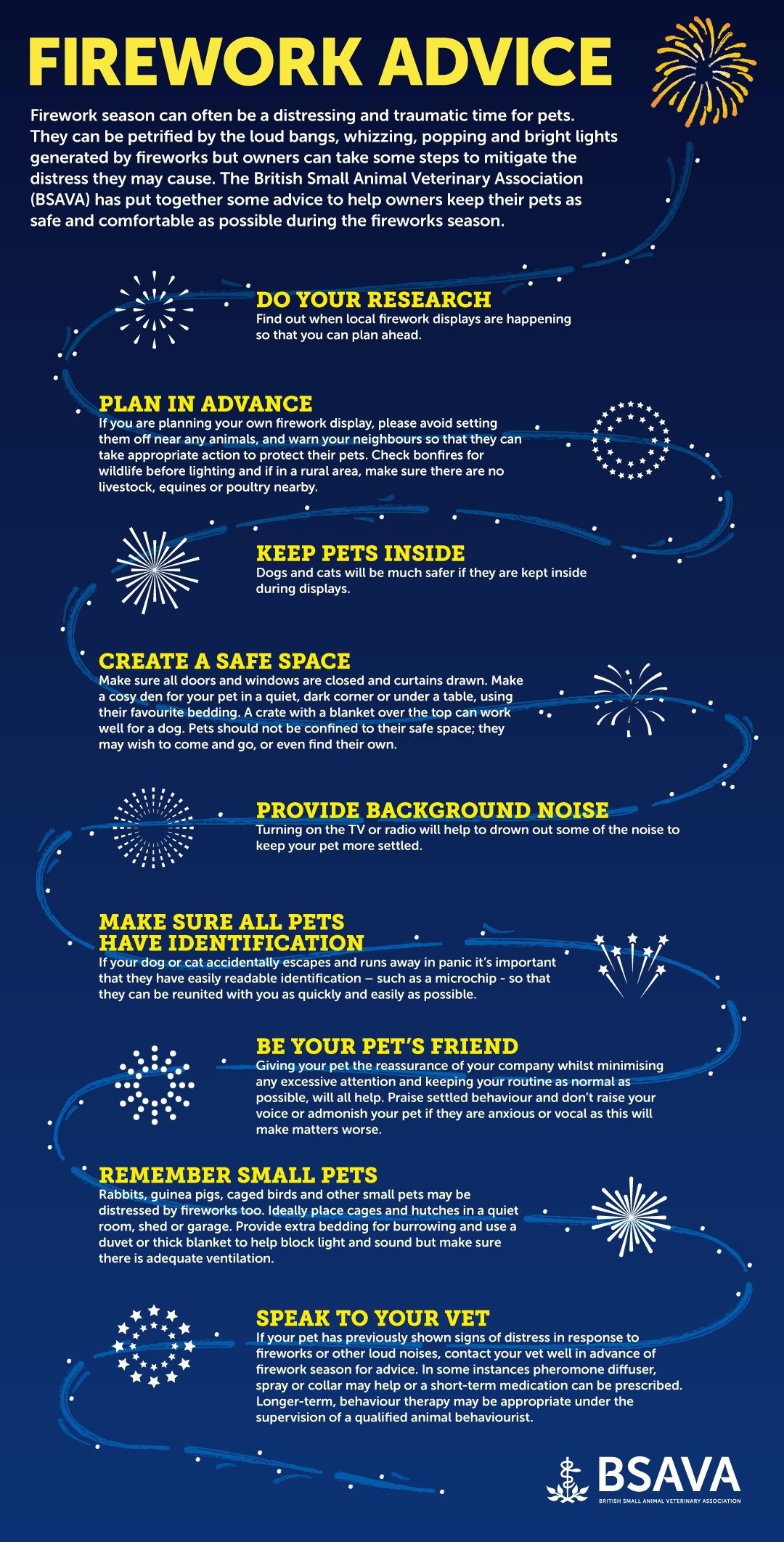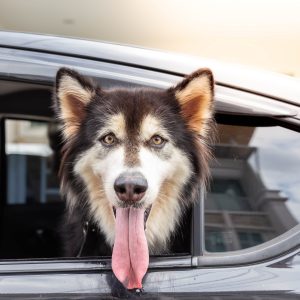The fear of thunderstorms is also very common in dogs. Many become anxious during these times, but you can help your pets with the techniques provided in this article.
How to help
If the problem is severe or worsens with time, it may be necessary to discuss it with your veterinary surgeon or behaviourist specialist. In some cases, your vet may be able to help by using certain calming drugs, but you should never medicate your pet without veterinary advice.
The reasons why your pet may be scared by intense sounds could be due to the lack of adaptation to these sounds as a puppy or kitten. It can also be explained by a more sensitive sense of smell and hearing. With thunderstorms, the fear may be exacerbated by the rain, lightning or due to a drop in atmospheric pressure. Pets can notice weather changes earlier than humans do.
It is important that you, as a pet owner, also keep calm, since sometimes it can occur that the owners becoming nervous may feed into the pet’s fear. Remember that it is important never to reprimand or punish your pet because they will not understand the reasons why they are being punished. In these situations, it is better to leave them alone. If you try to calm your pet by stroking him/her, you are reinforcing the unwanted behaviour.
What if my pet is outdoors?
If the situation occurs when you are in the street, there is a risk that your pet could run away, as this will be their first reaction. This could cause an accident, for example if it happens near a busy road. Therefore, it is important to have your dog on the lead and make your way back home. If you are about to leave the house and there is a thunderstorm coming or fireworks are heard, do not force your dog to go out.
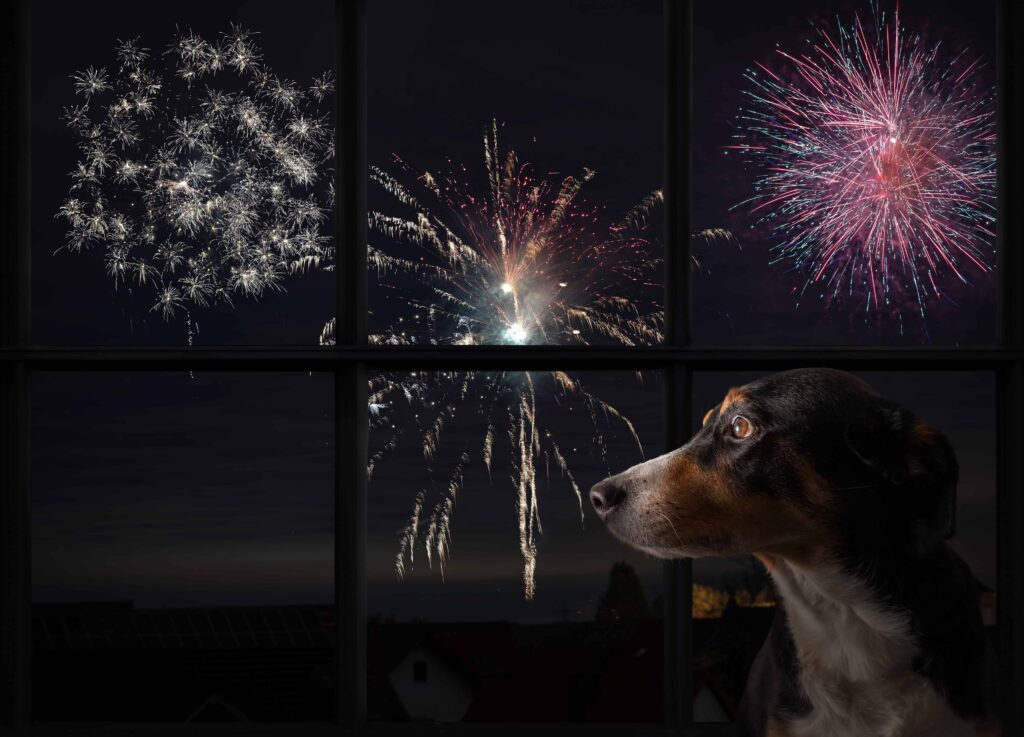
While you're at home
If the fireworks or thunderstorms occur while you and your pet are at home, you can create some safe conditions:
- Close windows and doors to avoid your pet escaping.
- Do not leave your pet alone since she or he could cause harm to him or herself.
- Create a shelter or safe place, for example under the bed, in the shower, in a cardboard box or using the cat or dog carrier as a hideout.
- Prepare a bed (or use your pet’s bed) with blankets, toys, and water/ food. These can be created beforehand if fireworks or thunderstorms are expected
- Continue with your routines.
- Do not punish or reward your pet and just provide them with a safe space.
- Play some background music which may work as a distraction.
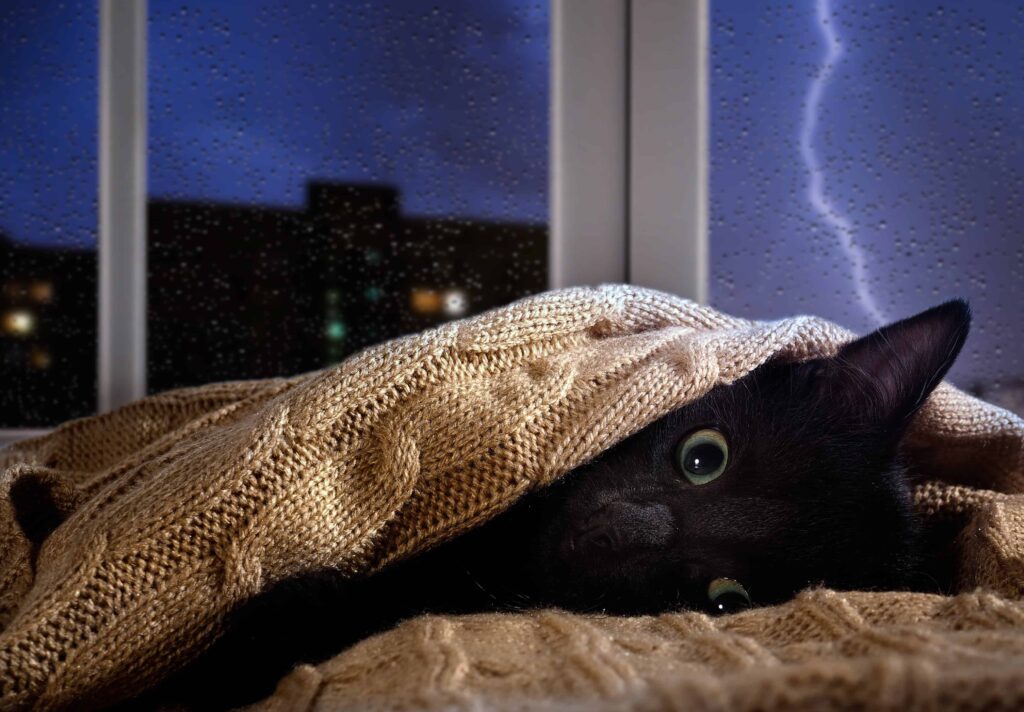
All the above options will create a feeling of safety. However, if this problem persists and becomes a phobia, it may be necessary to consult to a professional behaviourist. A behaviour specialist could attempt desensitization to the noise of the fireworks or thunder. This is a gradual and long process which will make your pet getting used to the noise and understand that there is no real danger.

